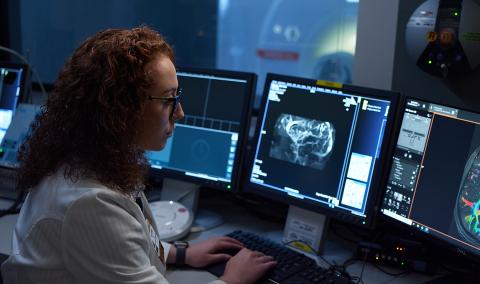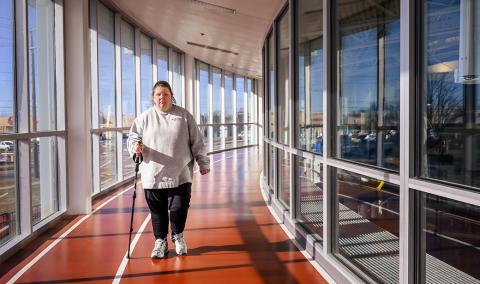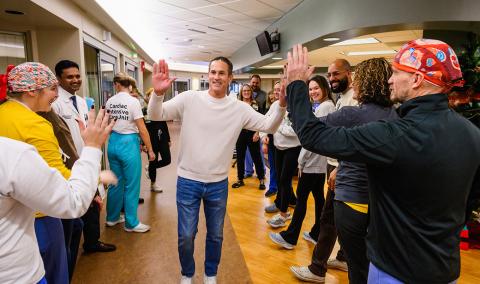Occupational medicine is a specialty of preventative care focused on helping employers keep employees safe and healthy at work.
At MU Health Care, our occupational health professionals evaluate the work environment and employees' work and health in the workplace in accordance with the Department of Labor’s Occupational Health and Safety Administration (OSHA) regulations. We offer two convenient locations in Columbia and Jefferson City.
Our experts have training in preventative medicine to offer a wide range of services, including evaluating employee work readiness, preventing work-related injuries and treating work-related injuries. All providers, including a board-certified physician at our Occupational Medicine Clinic in Columbia, are up to date on federal and state regulations for workforce health and safety, including OSHA, Department of Transportation (DOT) and more.
MU Health Care's team includes dedicated Occupational Medicine clinic coordinators to manage referrals, provide timely documentation, schedule follow-up appointments and ensure timely return-to-work recommendations. An athletic trainer is available to help develop workplace programs along with highly trained doctors, nurses and nurse practitioners.
Why do I need occupational medicine?
Workplace safety is a protected right of employees at local, state and federal levels. According to OSHA statistics, more than 5,000 workers are killed on the job every year, an average of 14 deaths per day, and more than 3.6 million suffer a serious job-related injury or illness.
Working with MU Health Care's occupational medicine specialists can help you keep workplaces and job sites safe by offering:
- Screening related to specific chemicals or exposures, including preplacement (post-offer) physical examinations, job placement assessments, periodic examinations, and maintenance of confidential employee health records, including individual screening results.
- Management and/or treatment of work-related illnesses and injuries, with emphasis on early recognition and intervention, ; recommendations about work restrictions or removal, follow up and monitoring of workers as they return to work.
- Development and implementation of health promotion and health education programs.
- Guidance for case management of employees who have prolonged or complex illnesses and injuries.
- General testing services, including EKG scans and chest X-rays, and workplace immunization programs (hepatitis B, tetanus/Tdap, TST, measles, mumps, rubella and chickenpox).
- Occupational injury medical evaluations, treatment and follow-up care for work-related injuries and illnesses.
- Fit-for-duty exams that may include grip strength, range of motion, strength testing and return-to-work physicals.
- Physical and required examinations, including exams for pre- and post-employment, disability claims, bus drivers, Coast Guard, hazmat workers, firefighters, crane operators, DOT requirements, OSHA regulations and independent medical exams (IMEs).
- Enhanced accuracy of OSHA recordkeeping.
- Drug and alcohol screenings for pre-employment, random collection requirements, reasonable suspicion or post-accident incidents.
- Screenings, consultations and evaluations including vision screenings, hearing screenings and protection recommendations, and carpal tunnel and ergonomics evaluations for desk workers.
- Medical surveillance programs and physicals for toxicology and first responders including hazmat and firefighter positions.
- Respiratory fit exams, including baseline screenings, annual screenings and respiratory clearance. Additional evaluations include pulmonary function, respiratory clearance and respirator fittings
- Blood work testing, including QuantiFERON-TB Gold testing, HIV, titers for varicella (chickenpox), titers for measles, mumps and rubella, titers for Hep A and Hep B, and lipid health (high cholesterol) screening.




























